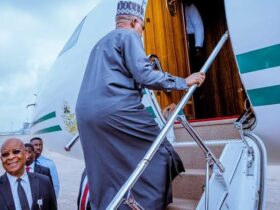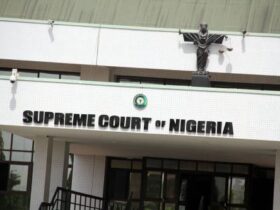In the wake of fuel subsidy removal and the recent surge in Premium Motor Spirit (petrol) prices, which has deepened economic hardship across Nigeria, more private car owners are turning to commercial services to help mitigate the impact of rising fuel costs.
According to findings by DAILY POST, the Nigerian National Petroleum Company Limited (NNPCL) raised petrol prices from N897 to N1,030 per litre, further worsening the country’s already challenging economic situation.
Experts warn that this price hike will push more citizens into poverty, exacerbating the ongoing cost-of-living crisis. Nationwide, fuel prices have soared by an average of 174.6 percent following recent policy changes.

The situation has placed additional strain on consumers, with the removal of fuel subsidies and the depreciation of the naira driving up the prices of goods and services.
Data from the National Bureau of Statistics highlights the severe impact on Nigerians, with inflation hitting 22.41 percent in May—significantly outpacing wage growth.
The report also revealed that fuel and transportation costs were the second and fourth largest contributors to inflation, respectively.
“Food and non-alcoholic beverages contributed the most to the acceleration in headline inflation (11.61 percent), followed by housing, water, electricity, gas, and other fuels (3.75 percent), clothing and footwear (1.71 percent), and transportation (1.46 percent),” the report said.
With inflation soaring to 33.95 percent, the sharp rise in food prices has led to widespread hardship, particularly for families on fixed incomes. Many are struggling to afford basic necessities, with reports indicating that the price of a bag of rice has surpassed N100,000.
Nigerian citizens and economists alike are calling on the government to implement measures to ease the financial strain on households.
Consumers continue to express concern over the rising costs of staples like eggs and various meats, particularly livestock.
Amid these challenges, some private car owners have turned to part-time commercial driving to offset their daily fuel expenses. By picking up passengers along their routes, they manage to reduce the impact of the fuel price hike.
This trend has seen more private vehicle owners adopting part-time cab driving as a way to cope with the economic hardship following the recent petrol price increase.
Speaking to DAILY POST, Akinolu Olu, a resident of Lugbe who works in Utako, Abuja, shared that he now charges his neighbors for rides to and from work—a practice he adopted after the removal of the fuel subsidy.
“Before the fuel subsidy removal, I used to transport four of my neighbors without charging them. However, since the price increased, I now charge N700 per person for each trip,” Olu explained.
(Daily Post)
Follow the Parallel Facts channel on WhatsApp: https://whatsapp.com/channel/0029VaCQSAoHgZWiDjR3Kn2E









Leave a Reply